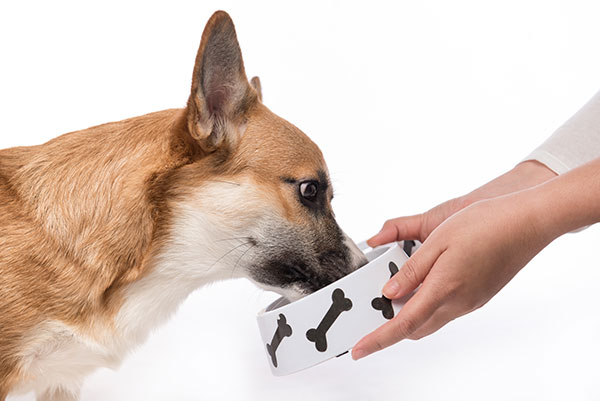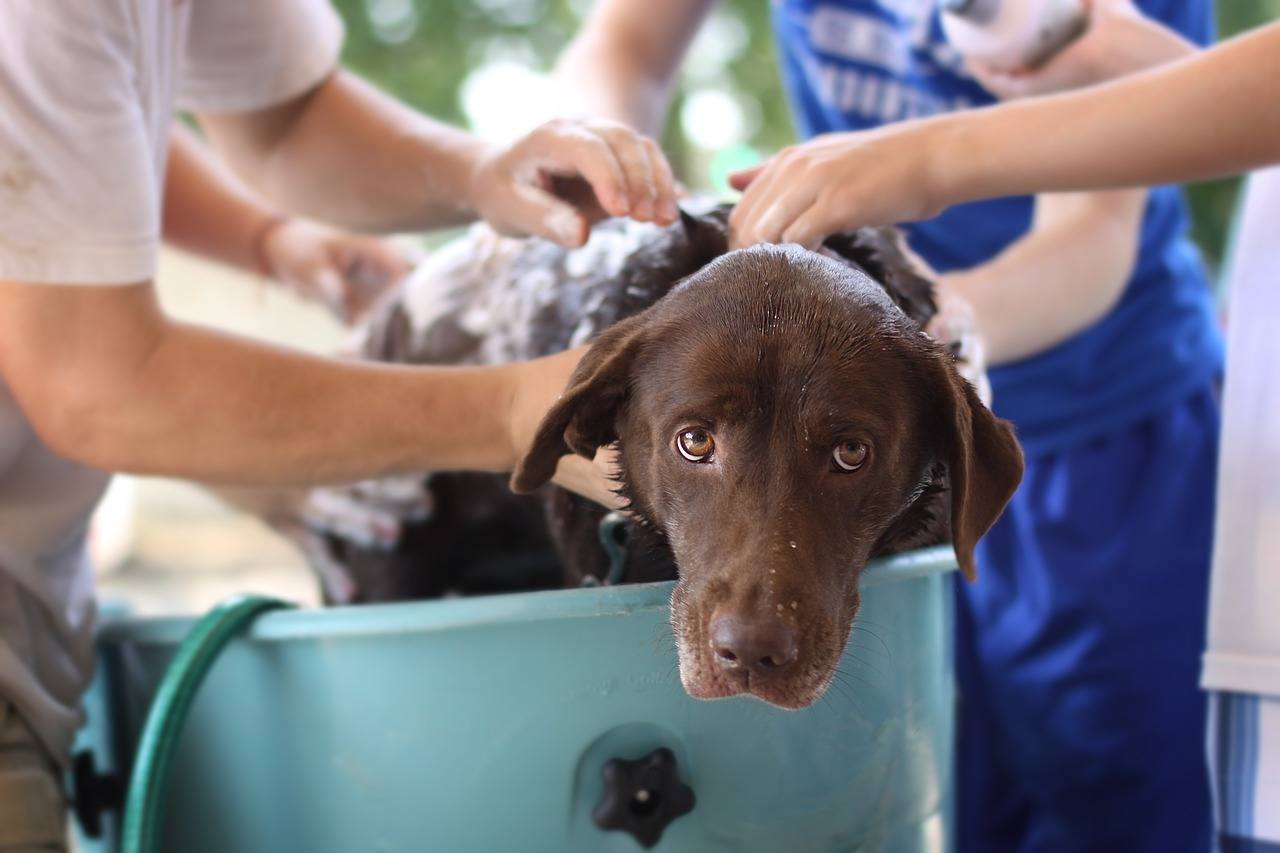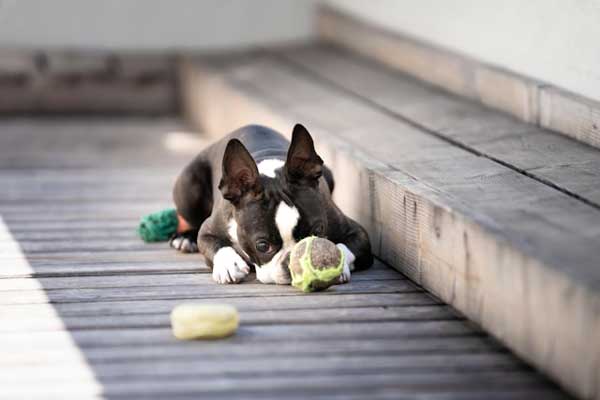Welcoming a puppy into your home is a joyous occasion, but it also comes with great responsibility. As a new pet parent, providing the best care for your furry friend is crucial for their well-being and happiness.
This comprehensive guide offers smart guidelines on how to take proper care of your puppy, ensuring a healthy and loving relationship from the early stages of their life. Let’s get started:
1. Create a Safe and Comfortable Space
One of the first steps in puppy care is creating a safe and comfortable space for your new furry family member.
Designate an area in your home where your puppy can retreat to for rest and relaxation. Use a comfortable bed, provide access to water, and introduce toys to keep them mentally stimulated. Establishing a secure space helps your puppy feel safe and eases the transition into their new environment.
2. Proper Nutrition: A Foundation for Health
Nutrition is a cornerstone of puppy care. Consult with your veterinarian to choose a high-quality puppy food that meets their specific nutritional needs. Puppies have different dietary requirements than adult dogs, and a balanced diet supports their growth and development.
Feed your puppy according to a schedule, and avoid giving them human food, as some items can be harmful. Monitoring their weight and adjusting portions as they grow is essential for maintaining optimal health.

3. Regular Vet Checkups and Vaccinations
Routine veterinary care is essential to ensure your puppy’s health. Schedule regular checkups to monitor their growth, address any concerns, and receive guidance on vaccinations.
Vaccinations protect puppies from common diseases, and your veterinarian will create a vaccination schedule tailored to your puppy’s age and risk factors.
Regular veterinary visits also provide an opportunity to discuss preventive care, such as flea and tick prevention, and address any behavior or training questions you may have.
4. Basic Training: Establishing Good Habits
Early training is key to fostering a well-behaved and obedient puppy. Start with basic commands like sit, stay, and come. Use positive reinforcement techniques, such as treats and praise, to encourage good behavior.
Consistency is crucial, so set clear rules from the beginning. Establishing a routine for feeding, bathroom breaks, and playtime helps your puppy understand what to expect and builds a foundation for a well-behaved adult dog.
5. Socialization: Exposure to the World
Proper socialization is vital for a well-adjusted and confident puppy. Introduce them to various environments, people, and other animals gradually. Positive experiences during the critical socialization period (typically between 3 and 14 weeks of age) help prevent fear and anxiety as they grow older.
Puppy socialization classes can provide structured opportunities for interaction, and supervised playdates with other dogs can contribute to their social development.
6. Grooming and Hygiene Practices
Establishing good grooming habits early on contributes to your puppy’s overall well-being. Brush your puppy’s coat regularly to prevent matting and reduce shedding.
Introduce them to tooth brushing to maintain oral health, and trim their nails to prevent discomfort and potential injuries.
Regular grooming sessions also allow you to check for any lumps, bumps, or abnormalities that may require veterinary attention.

7. Canine Elegance: Managing Dog Tear Stains and Overall Hygiene
Hygiene is a crucial aspect of caring for your puppy, ensuring they remain clean and healthy.
Pay special attention to areas prone to moisture, such as the eyes. Some breeds are susceptible to tear stains, which are reddish-brown streaks beneath the eyes. Use a veterinarian-approved solution to gently clean dog tear stains, and consider incorporating a diet rich in nutrients that promote eye health.
Keeping your puppy’s eyes and facial fur clean not only enhances their appearance but also contributes to overall hygiene and well-being.
8. Exercise: Balancing Play and Rest
Puppies have boundless energy, and providing them with appropriate outlets for exercise is essential. Engage in play sessions, take short walks, and provide interactive toys that stimulate their physical and mental abilities. However, balance is crucial, as puppies also need ample rest for proper growth and development. Establish a routine that includes both active playtime and dedicated rest periods.
9. Patience and Positive Reinforcement
Caring for a puppy requires patience and a positive mindset. Understand that puppies are learning, exploring, and adapting to their surroundings. Approach training and correction with positive reinforcement, rewarding good behavior rather than focusing solely on discipline.
Patience during house training, teething, and sometimes challenging puppy behaviors will strengthen the bond between you and your furry friend.
10. Healthy Habits: Beyond the Basics
Maintaining your puppy’s health goes beyond the essentials. Ensure they have access to fresh water at all times, clean their living space regularly, and monitor for any signs of discomfort or distress.
Regular play and mental stimulation are crucial for their overall well-being. Additionally, consider introducing puzzle toys to engage their cognitive abilities and provide entertainment.
11. Exploring Specialized Care: Tailoring to Your Puppy’s Needs
Each puppy is unique, and understanding their individual needs is crucial for tailored care. Some breeds may require specific grooming routines, dietary considerations, or even specialized training. Researching and adapting your care approach to match your puppy’s characteristics, energy levels, and potential health predispositions ensure a personalized and attentive caregiving experience.

Conclusion:
As you embark on the journey of puppy parenthood, remember that the care you provide establishes the foundation for a lasting connection. Through the highs and lows, the learning moments, and the shared adventures, your puppy becomes more than a pet – they become a cherished member of your family.
By embracing the smart guidelines outlined in this comprehensive guide, you not only ensure the well-being of your furry friend but also cultivate a bond based on mutual love, trust, and understanding.
The joy of raising a happy and healthy puppy is immeasurable, and as you navigate this journey together, savor the small victories and the everyday moments that strengthen the unique connection between you and your canine companion.
We hope this article was helpful to you, and that you and your canine companion embark on a wonderful journey together. By following these smart guidelines, you’re not just caring for a pet; you’re nurturing a lifelong friendship.

